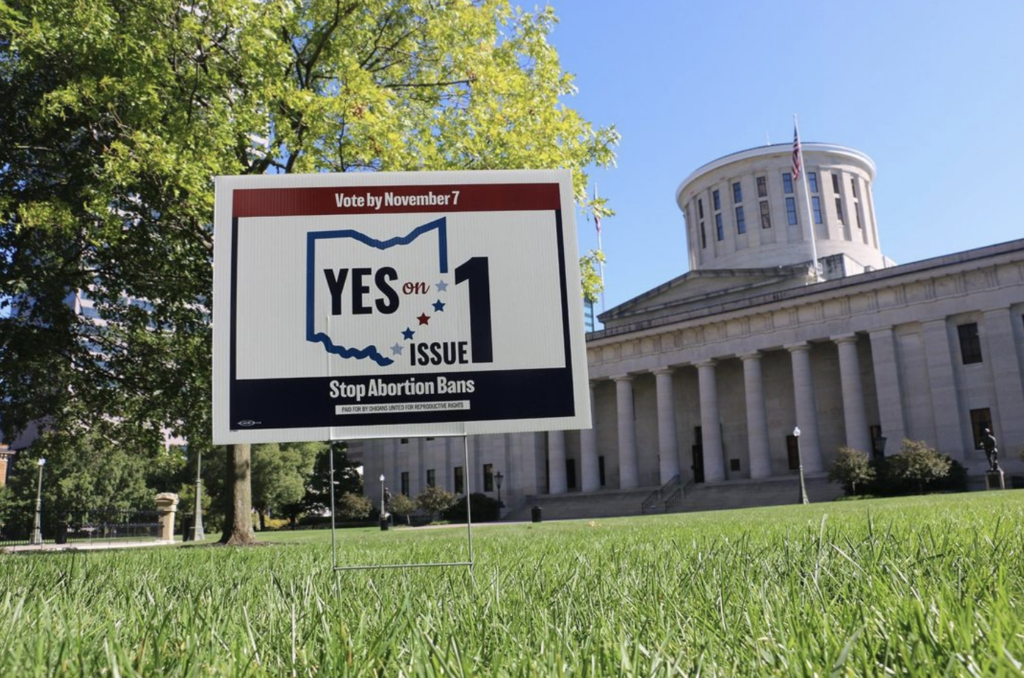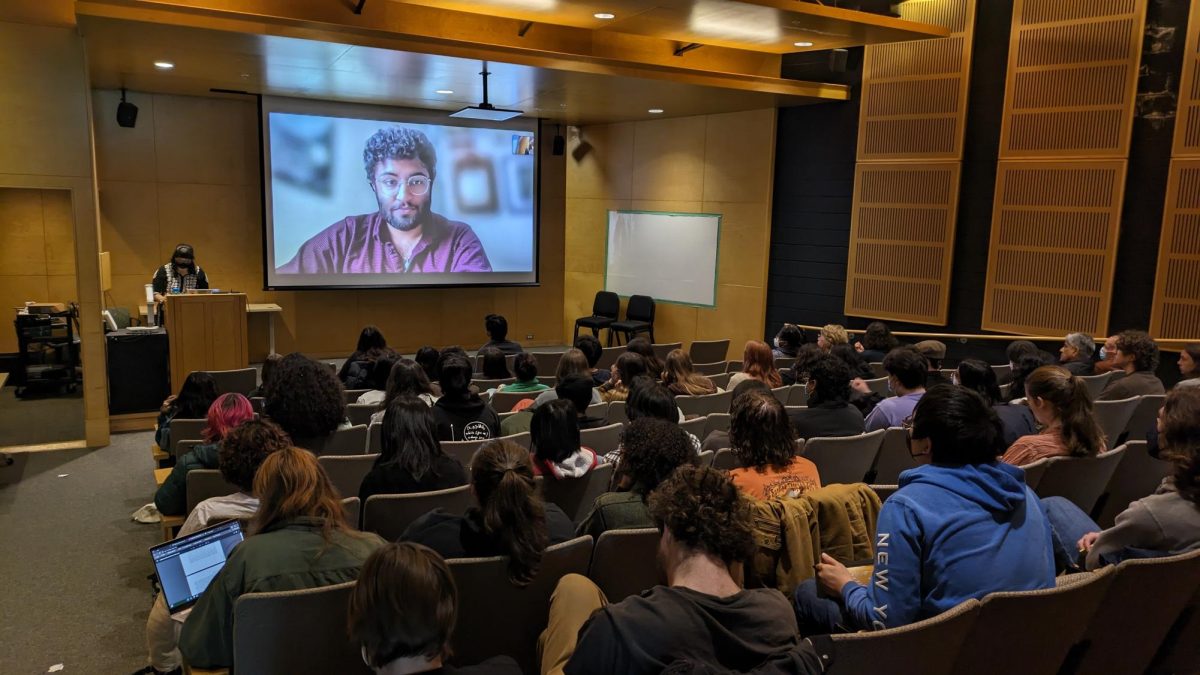On Nov. 7, Ohio voters will participate in the state’s general election on Issues 1 and 2.
Issue 1 allows voters to decide upon a constitutional amendment change, establishing an individual’s right to reproductive medical treatment.
If sufficient voters select “YES,” section 22 of Article 1 of the Constitution of the State of Ohio will change. Individuals receiving reproductive medical treatment can have legal protections and be treated on a case-by-case basis by a physician. The state cannot prohibit abortion before a fetus is considered viable.
The proposed amendment defines fetal viability as: “the point in a pregnancy when, in the professional judgment of the pregnant patient’s treating physician, the fetus has a significant likelihood of survival outside the uterus with reasonable measures. This is determined on a case-by-case basis.”
The state can only prohibit an abortion in the instance of a fetus being viable and the woman’s physician not considering the abortion to be necessary. Additionally, a fetus can be aborted at any stage if a physician is concerned about a woman’s health.
Norwalk resident and candidate for Ohio House of Representative District 54 Dr. Kellie Deeter wrote to the Review about her concerns for parental rights if the amendment is approved.
“It creates a new legal standard that goes far beyond pre-Dobbs law under Roe v. Wade, and Planned Parenthood v. Casey, which upheld parental consent and a 24 hour waiting period,” Deeter wrote. “It gives abortion rights to every pregnant individual, including minors, calling into question whether or not parents will have the ability to have a say in the medical decisions of their children.”
Lili Sandler, founder of Lorain County Rising and a member of the executive committee of the Lorain County Democratic Party, spoke to the Review about why Ohioans should vote “YES.”
“Voting yes for this constitutional amendment does not require that the voter themselves have an abortion,” Sandler said. “It does not mean that they need to be in favor of abortion. It does not mean that they need to think that abortion is a great form of contraception or anything like that. What it means is that they believe that people should have the option available to them if they find themselves in those dire circumstances, whatever the cause may be, and we need to have that option. It is healthcare.”
Issue 2 is a proposed law to enact Chapter 3780 of the Ohio Revised Code. It proposes the commercialization, regulation, legalization, and tax for the adult use of cannabis. If sufficient voters select “YES,” this law will be enacted.
Oberlin resident John Pardee is president emeritus of the Ohio Rights Group, a cannabis legalization organization. He wrote to the Review about his concerns for Issue 2 as an initiated statute, as opposed to a proposed law from a citizen to the people of Ohio for a statewide vote.
“The State Legislature can drastically restrict or even void Issue 2 in its entirety because it is an ‘Initiated statute’ and not a Constitutional Amendment like Issue 1,” Pardee wrote. “And the Senate leadership has already drafted a plan to do just that.”
If this is passed, adults must be 21 years or older to purchase cannabis in facilities where the cultivation, processing, and sale of cannabis will be regulated and investigated by the state of Ohio. According to the text of Chapter 3780, an individual can possess “[2.5] ounces of adult use cannabis in any form except adult use extract … [and] 15 grams of adult use cannabis in the form of adult use extract. ” An individual consumer may only purchase these amounts from a dispensary per day.
The proposed law includes a social equity and jobs program, giving people from disadvantaged groups preference for cultivator licenses. The ballot language notes that the issue will “[r]equire the Division to provide preferential treatment to applicants who have qualified for the cannabis social equity and jobs program based on social disadvantage when issuing level III adult use cannabis cultivator licenses and dispensary licenses.”
Additionally, the law aims to prohibit certain local government entities from limiting homegrown cannabis. Adult users will be permitted to grow six plants per person, but 12 plants per household if two adults live together.
Landlords and employers have the authority to prohibit the use of cannabis in certain circumstances. The operation of a motor vehicle while under the influence of cannabis is prohibited.
New programs and funds will be created if this law passes. An agreement with the Department of Mental Health and Addiction Services will create a program for cannabis addiction. The law proposes five new funds in the state treasury: the aforementioned cannabis social equity and jobs fund, adult use tax fund, a host community cannabis fund, a substance abuse and addiction fund, and the division of cannabis control and tax commissioner fund.
If the law passes, there will be a taxation of 10 percent on the sale of adult use of cannabis by dispensaries. All money from the tax will be deposited into the adult use tax fund and distributed quarterly. The ballot language explains that these funds will be divided among these programs, with “36 percent to the cannabis social equity and jobs fund; 36 percent to the host community cannabis facilities fund; 25 percent to the substance abuse and addiction fund; and three percent to the division of cannabis control and tax commission fund.”






